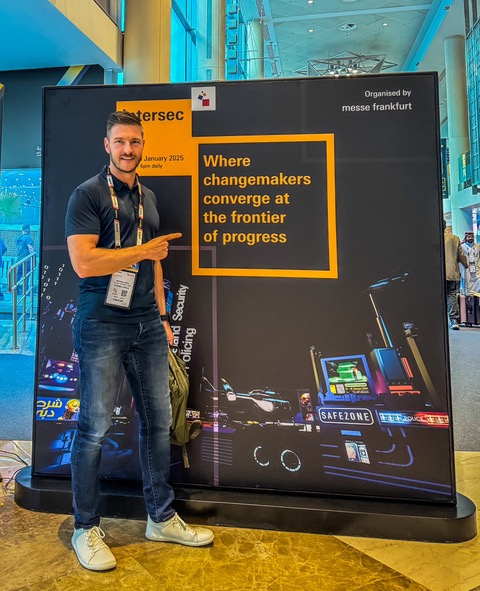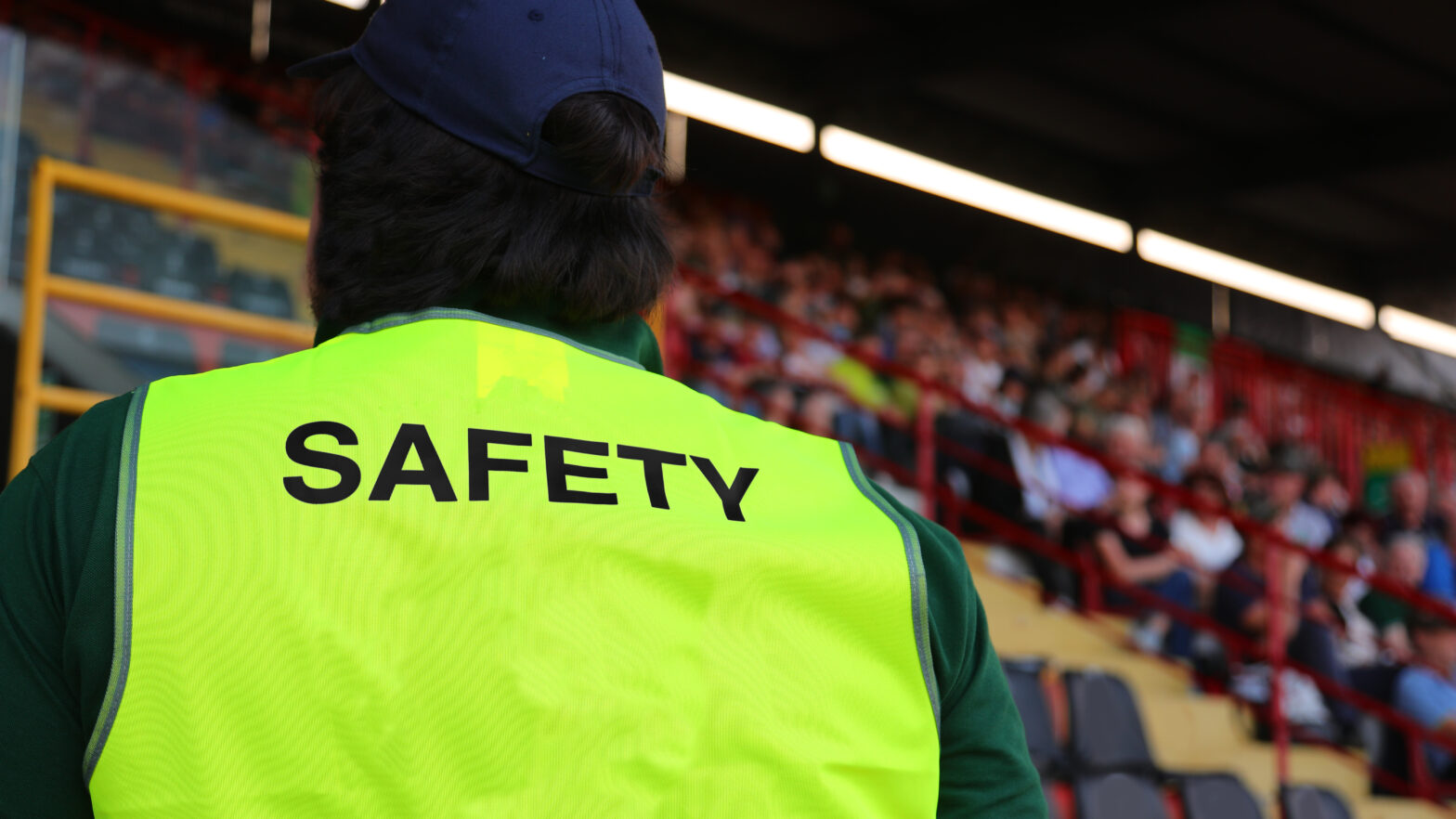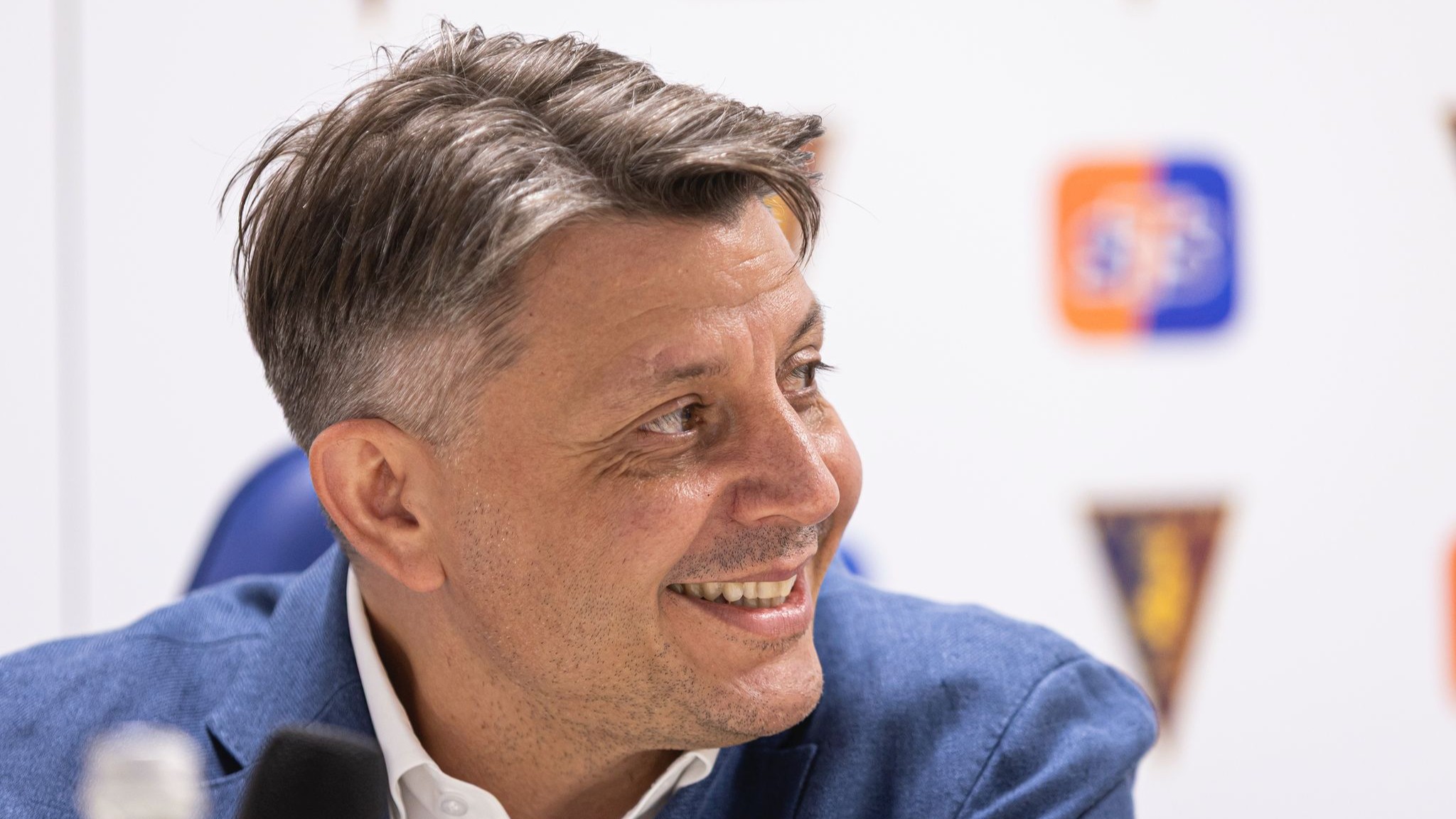Football clubs often focus on performance, fan engagement, and commercial growth, but security remains a critical, yet overlooked, pillar of club operations. From stadium crowd management to cyber threats, clubs face a growing set of challenges that demand proactive risk management.
This is where Invisible Shield steps in. Founded by Michael Kohl, a former Austrian special forces police officer with 20 years of service, Invisible Shield brings elite law enforcement experience into football security solutions. Now expanding across Europe, the company is on a mission to help clubs stay ahead of security risks.
Recently, Invisible Shield also joined our FBIN Network, further strengthening its commitment to innovation and collaboration in football security.

From Special Forces to Football Security
Michael Kohl’s career in law enforcement laid the foundation for Invisible Shield’s expertise. Having served over a decade in Austria’s elite police units, including EKO Cobra, he specialized in high-risk security operations, crisis response, and personal protection.
“After two decades in public service, I realized that security is not just a governmental responsibility but is becoming increasingly important in the private sector.”
His first-hand experience with football security came during UEFA Euro 2008, where he worked as a Fan Liaison Officer, coordinating with clubs and security teams to manage large crowds and prevent violence. Later, he supported Sturm Graz with international security deployments, including assignments in Athens and Budapest.
“In those roles, I had to learn to navigate high-pressure environments and assess risks instantly,” Kohl recalls. “Football security isn’t just about controlling crowds—it’s about understanding human behavior, identifying threats before they escalate, and ensuring that all stakeholders are on the same page.”

The Security Challenges Football Faces Today
Modern football presents a unique set of security risks, from physical threats to digital vulnerabilities. Kohl highlights several pressing concerns:
Crowd management remains a major issue, with clubs needing to ensure smooth spectator flow, prevent fights, and protect players from pitch invasions.
Additionally, poor emergency response planning often leads to chaotic evacuations or delayed security actions.“If a club doesn’t have a structured emergency response, a minor incident can quickly escalate into a disaster,” says Michael.
Insider threats are another challenge, with stadium staff sometimes collaborating with hooligans to smuggle flares or banned substances into matches.
Cybersecurity risks are also on the rise, with clubs increasingly targeted by data breaches, phishing attempts, and ransomware attacks.
“Football stadiums gather more people in one place than almost any other event. That alone makes them a target,” explains Kohl.
Another often overlooked issue is poor stadium design. Kohl notes that many European clubs and their existing stadiums have limited room to expand. Updating security measures from the ground up can pose a huge challenge in confined spaces.
At the 2022 World Cup in Qatar, security planning was embedded from the start, unlike many European clubs that retrofit security into existing stadiums.
“In Qatar, security was integrated into stadium construction from day one. In Europe, we often try to retrofit safety measures into outdated infrastructure, which can lead to vulnerabilities.”
How Invisible Shield Supports Football Clubs
Rather than providing direct operational security, Invisible Shield focuses on risk assessment, consulting, and training.
The company helps clubs identify vulnerabilities in stadium security, crowd control, and emergency exits. They also provide live scenario-based training to ensure stadium security personnel are prepared for real-world threats.
Another key area of expertise is VIP and player protection, offering discreet security services for high-profile individuals, both domestically and during international travel.
For smaller clubs with limited budgets, Kohl emphasizes that security is still achievable.
“We help clubs prioritize their most critical risks and find scalable solutions. A club doesn’t need the most expensive tech—they need the right strategy and trained staff to maximize security,” he says.
He also highlights the importance of fostering strong partnerships between clubs and local law enforcement to improve communication and coordination. “Many clubs, especially smaller ones, lack structured crisis response protocols, leading to chaotic evacuations and delayed actions when incidents occur,” says Michael.
Real-Life Lessons and Global Trends
Kohl stresses the importance of learning from past incidents and implementing best practices from global security trends. He cites the 2015 Paris terror attacks as a lesson in preparedness.
“Had the Stade de France lacked proper security screenings, the attackers would have entered the stadium, leading to far greater casualties,” he notes.
Another example is Sturm Graz, where club security protocols were restructured after issues with fan clashes and poor stadium layout.
Kohl also attended the Intersec Conference in Dubai, where AI surveillance, drone monitoring, and biometric entry systems were major talking points. “Football clubs are behind on these technologies, but they are the future of stadium security,” he asserts.
Speaking about AI surveillance, Michael states: “AI-powered surveillance and biometric security will soon be standard in football, but clubs must also invest in cybersecurity to protect sensitive data.”
He also points out the increasing threat of drone-related security risks, an issue that is becoming more prevalent in football matches and major events.

Looking Ahead: The Future of Football Security
The security landscape in football is evolving, and Kohl believes clubs must adapt to the changing risks. In the next five to ten years, he anticipates the adoption of advanced security solutions, including:





“Security is not just about preventing incidents—it’s about creating a safe and enjoyable environment for fans, players, and staff,” says Kohl. “A well-managed security strategy protects not only people but also a club’s reputation and financial stability.”
With its experience, hands-on approach, and focus on proactive risk management, Invisible Shield is helping football clubs transition from reactive crisis handling to a strategic security mindset.
***
Michael Kohl and Invisible Shield will be present at the FBIN Commercial Excellence Summit in Budapest on March 19, where they will discuss the future of football security and risk management. Tickets are available online now.
For more insights into the evolving world of football business, visit more Football Business Inside articles.


 Upgrade to Premium Now
Upgrade to Premium Now






